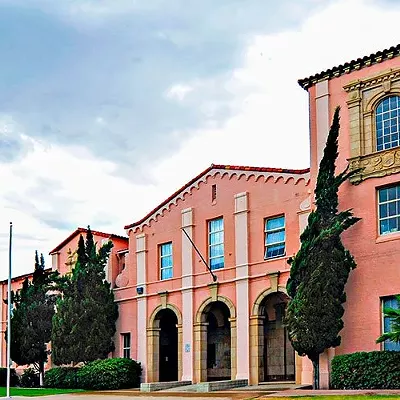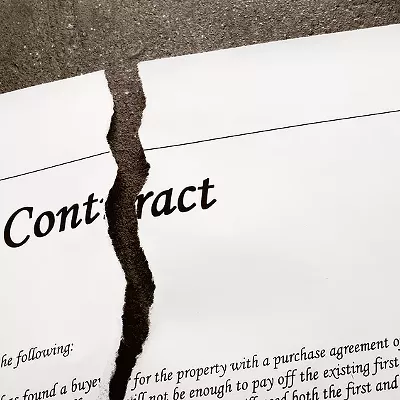Last Tuesday's City Council meeting attracted about 50 people protesting an agreement that would reignite a school safety program between Tucson Unified School District and the Tucson Police Department.
Ana, a junior at Tucson High Magnet School, was in that crowd.
She's undocumented, but is raising funds to apply for the Obama Administration's DACA program so should would be able to be shielded from deportation.
The School Resource Officer program had been dead for the past five years, largely due to the budget cuts that corroded TUSD. During that hiatus, SB1070 happened. The 2010 statute, known as the "show me your papers" law, allows Arizona cops to question people on their immigration status. So, if Ana ended up under the custody of a cop at school, hers would have been an issue.
For now, Ana is safe in the classroom.
That night, the council unanimously approved the SRO deal between TUSD and TPD with a clause that reinforces a police officer cannot look into a student's status unless absolutely vital to the investigation and with the permission of a parent, guardian or attorney.
"I am being affected in every way. It's like they're pushing me away. I'm attending this school and I'm undocumented and I'm of color ... so I'm a criminal?" says Ana, who was brought to Tucson by her parents when she was a few months old.
Ana spoke at the council meeting.
She stood in front of the podium and read from a piece of notebook paper, where she had organized her thoughts a few minutes prior.
"(School) is one of the few places I feel safe, because of the fact that I am undocumented," she reads, taking a long pause to hold back tears. "This agreement makes me feel like you are pushing me out. That I don't deserve an education and I don't matter because of the fact that I wasn't born here."
One of Ana's high school teachers, Jennifer Contreras, was there for support. The Mexican-America Studies turned American government educator says, ideally, there shouldn't be any police officers at the schools. That alone is "already threatening."
"We're losing that battle, but for them not to question the status of people ... brown people, black people, any type of human that is getting an education, going to school ... that is irrelevant," Contreras says.
She was afraid this may cause a lot of undocumented students to stop showing up to class. What would happen if one of them got into an altercation with another schoolmate and was arrested over a minor offense?
The clause prohibiting the inquiry of a student's immigration status didn't exist in the contract a few months ago. At the time, the council delayed establishing the SROs in TUSD and Amphitheater Public Schools until both districts added the clause and the contracts were approved at their respective public meetings.
At last week's council meeting, TUSD's amended agreement was the only one in question.
The district is getting $2.2 million for SROs over the next three years from the Arizona Department of Education. Nine officers will be placed at more than a handful of schools–not all within TUSD.
"We need a balance. We can't say 'no' to funds for school safety, but I also know that we have to protect our undocumented population ...," says Kristel Foster, a TUSD board member. "We are stuck between the two of those. We also know we have this sanctuary movement, and when we think of schools or we think of churches ... those are safe havens."
Foster says the collaboration between local law enforcement and the district isn't ending any time soon. If immigration is left out, this is a relationship that, for the most part, has worked well, she adds.
But this is also a matter of rebuilding a shattered trust between the cops and many people in the community. For years now, SB1070 enforcement in Tucson has brought lots of heat—and that's putting it lightly—to the police department.
Although Tucson police Chief Roberto Villaseñor has been vocal about his opposition to SB1070, he says the department is still "bound to enforce the law," whether on the streets or school hallways. He reinforced that stance at the council meeting, but the audience members shouting "harassment" made it difficult to hear the rest of it.
Councilwoman Karin Uhlich says there is a serious problem in confusing local law enforcement with immigration officials.
"If we ever hope to be successful, where the community actively participates in public safety, we have to have that strong trust ...," she says. "Victims of crime, witnesses of crime, not only people who may be undocumented themselves, but family members or others in their circle. If they are afraid to participate in public safety, everyone in our community is made less safe. So, it's a particular concern regarding young people and the special treatment that ought to be happening at our schools."
The next step is to review how TPD's been handling SB1070. Council members will look into that in January.
At the meeting, Uhlich and Councilwoman Regina Romero suggested looking into how South Tucson is dealing with the law. Over the summer, the South Tucson Police Department and the American Civil Liberties Union of Arizona reached a deal that requires police officers to fill out detailed paperwork whenever they contact an immigration official. They also can't question witnesses of crimes over their status.
In the meantime, the state is still in a major lawsuit over the constitutionality of SB1070, and whether or not it was passed with discriminatory intent.
For now, Ana is content the council sided with undocumented students.
"I'm trying to get an education, trying to be someone here, trying to go to the university ... my goal is to become a lawyer," she says. "It feels good to know that there are still some people out there who support us."











